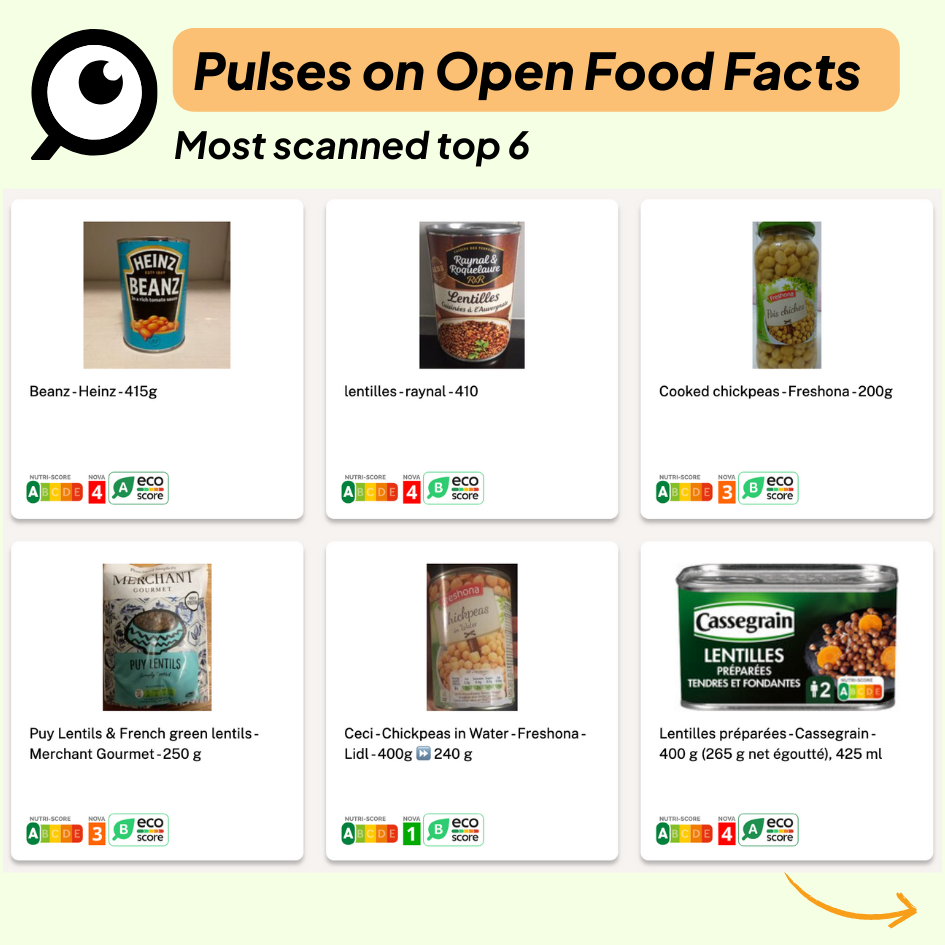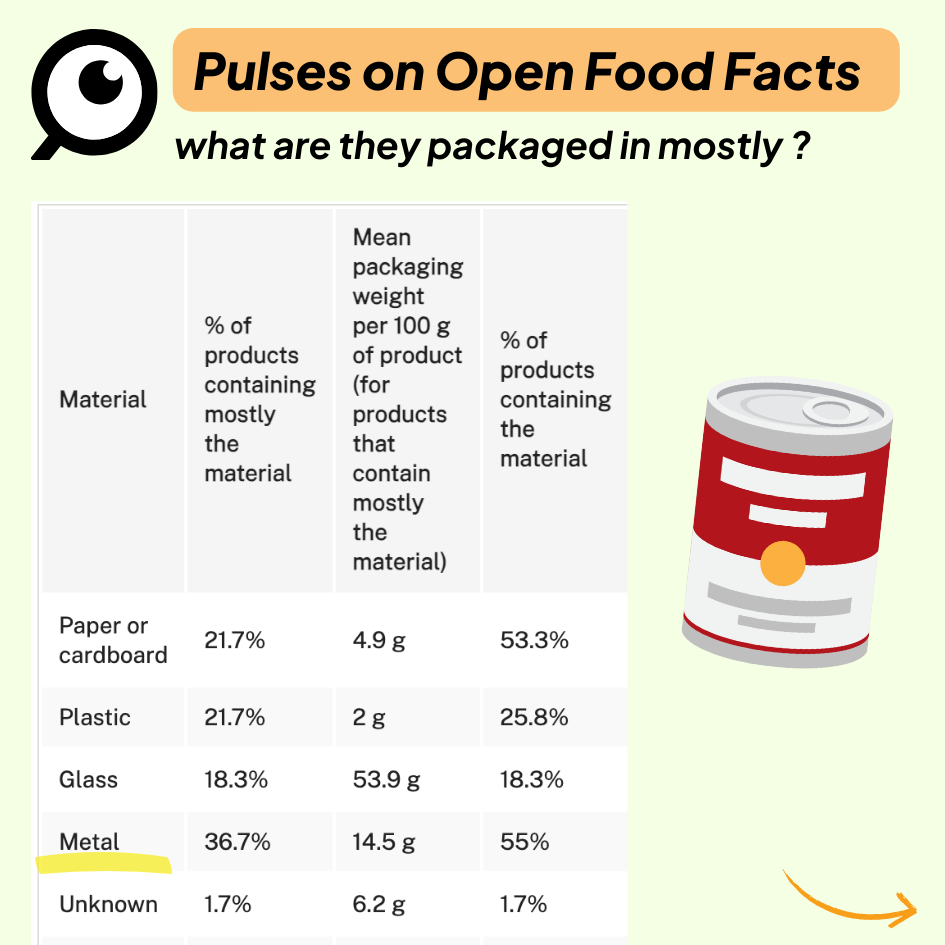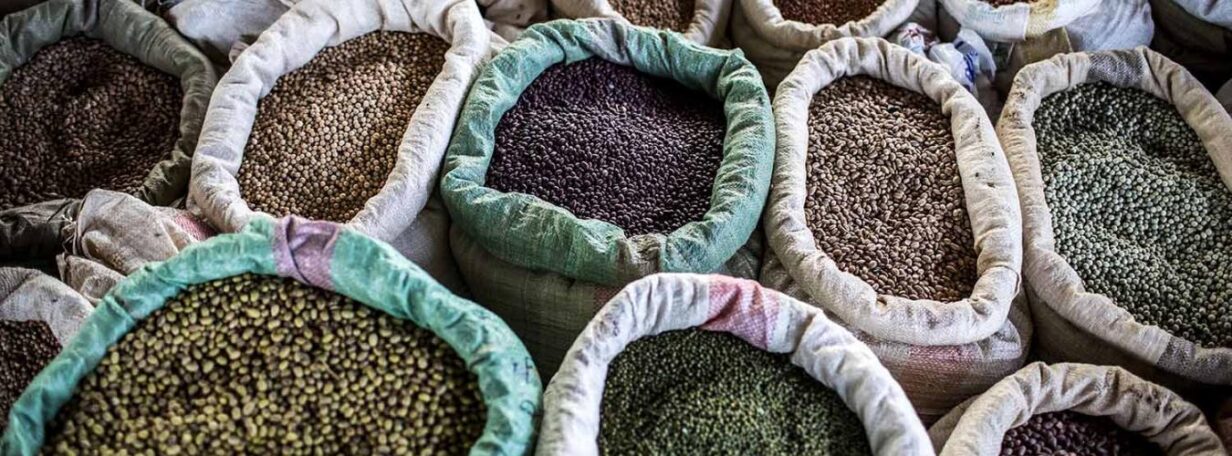
Pulses Day
10th February: World’s international day of pulses 🫘🫘🫘 !
Pulses are the edible seeds of leguminous plants cultivated for both food and feed. Beans (Phaseolus and Vigna), chickpeas and peas are the most well-known and commonly consumed types of pulses, but there are several varieties more from around the world, all with great benefits on food security, nutrition, health, climate change, and biodiversity. (source: FAO)

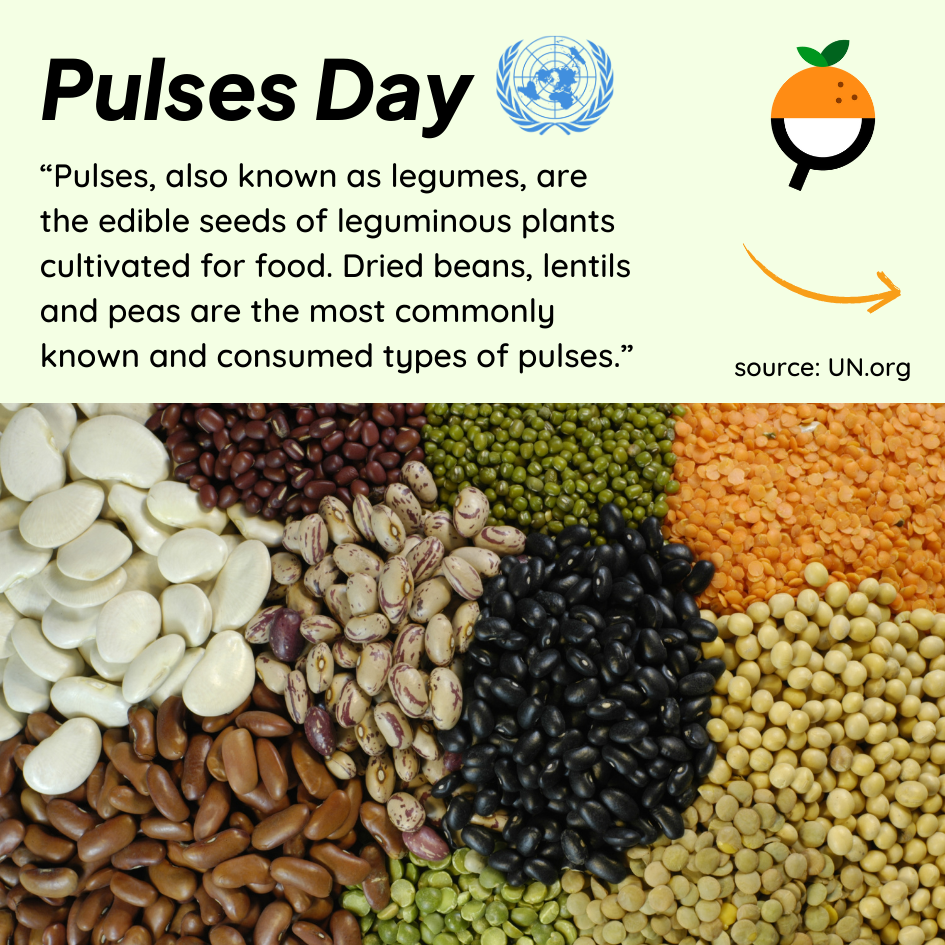
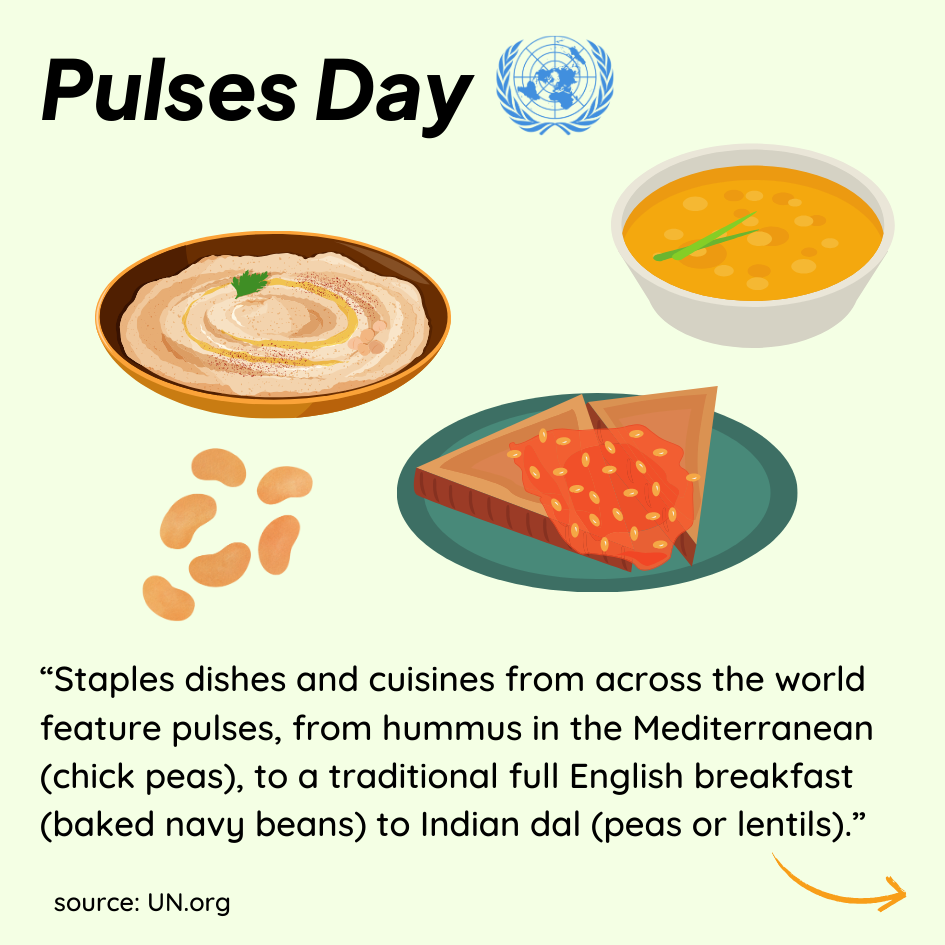
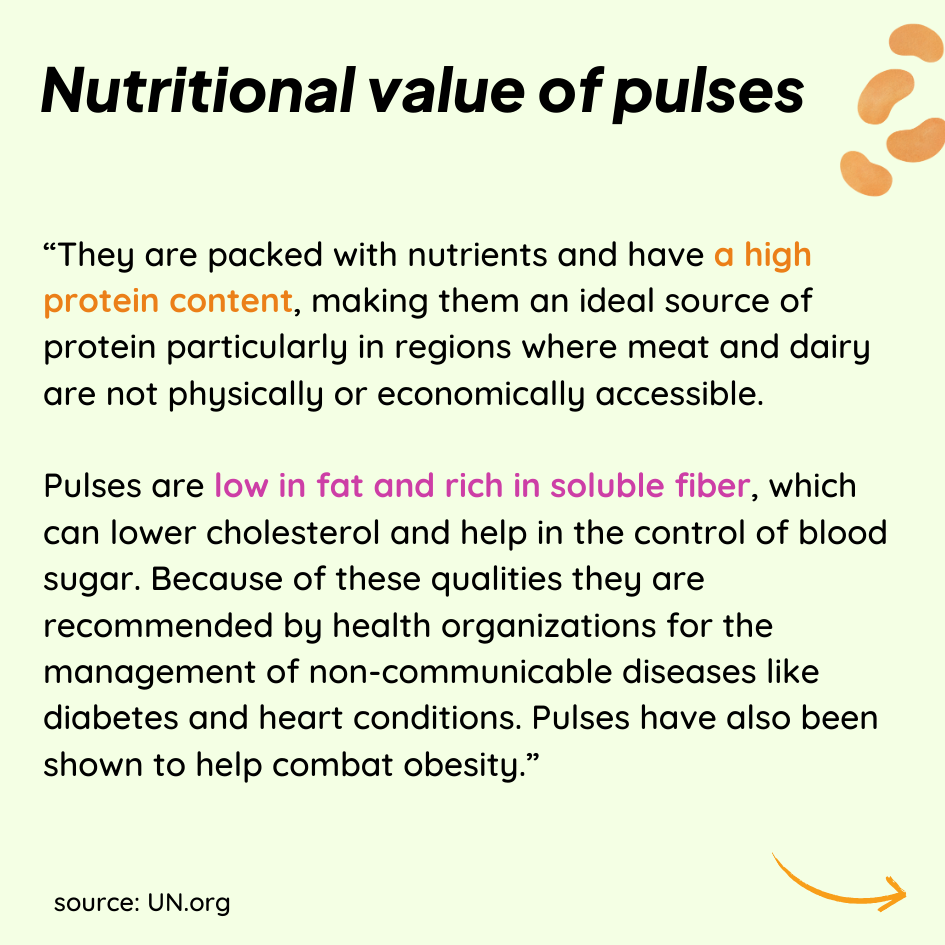
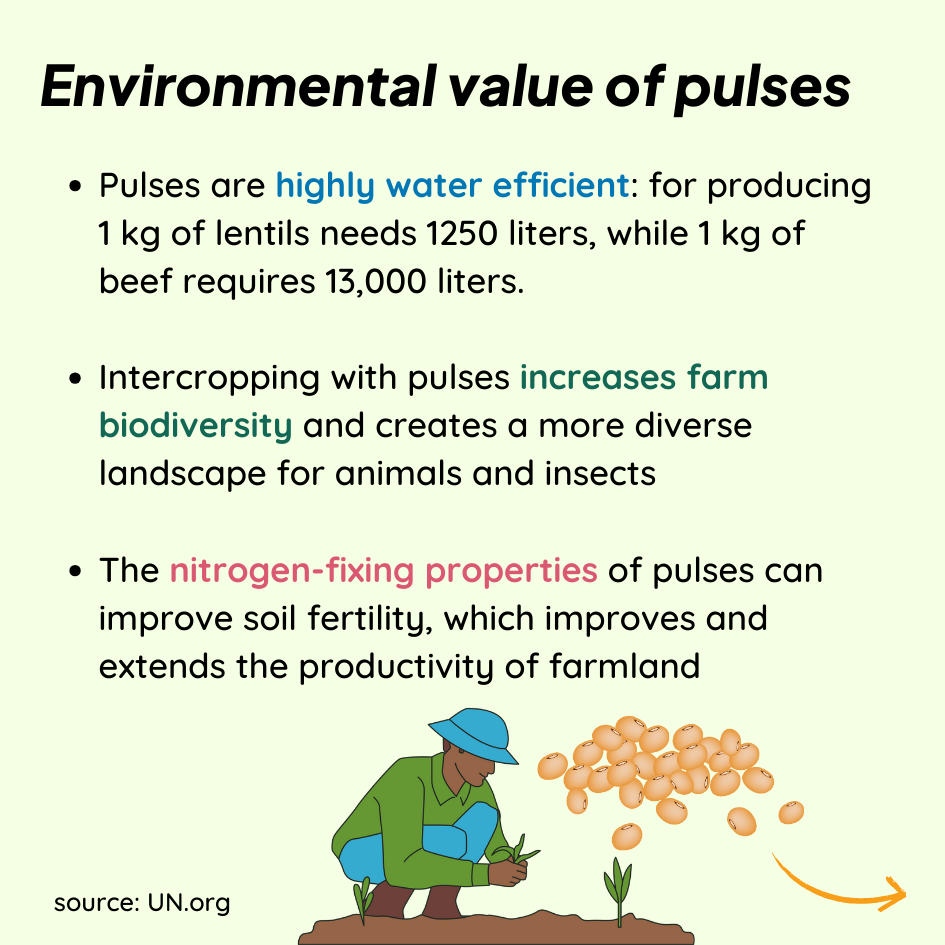
Some context
Recognizing their value, on 20 December 2013, the UN General Assembly adopted a resolution (A/RES/68/231) proclaiming 2016 as the International Year of Pulses (IYP). The celebration of the year, led by the Food and Agriculture Organization of the United Nations (FAO), increased the public awareness of the nutritional and environmental benefits of pulses as part of sustainable food production.
Building on the success of the International Year of Pulses and recognizing their potential to further achieve the 2030 Agenda for Sustainable Development, with particular relevance to Sustainable Development Goals 1, 2, 3, 5, 8, 12, 13 and 15, Burkina Faso proposed the observance of World Pulses Day.
Pulses on Open Food Facts
Learn more about these nutritious seeds from the United Nations & Open Food Facts database.
Use our free open database (app or site) to be better informed about your everyday food products.
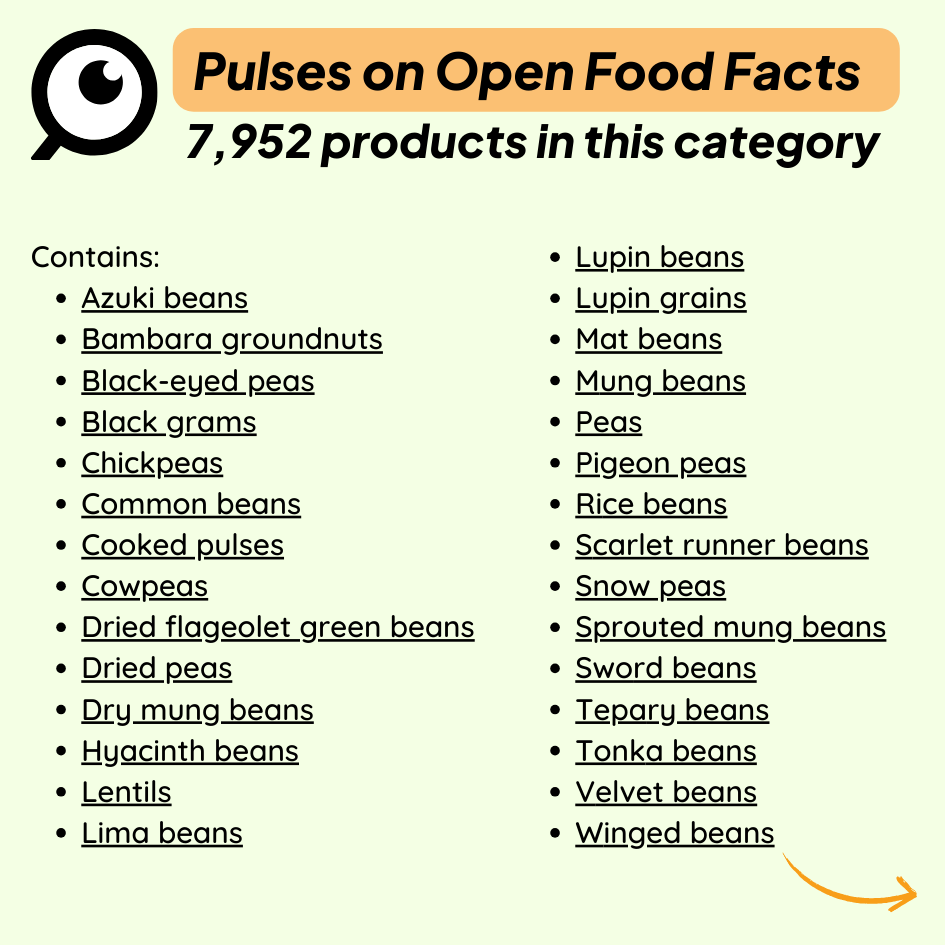
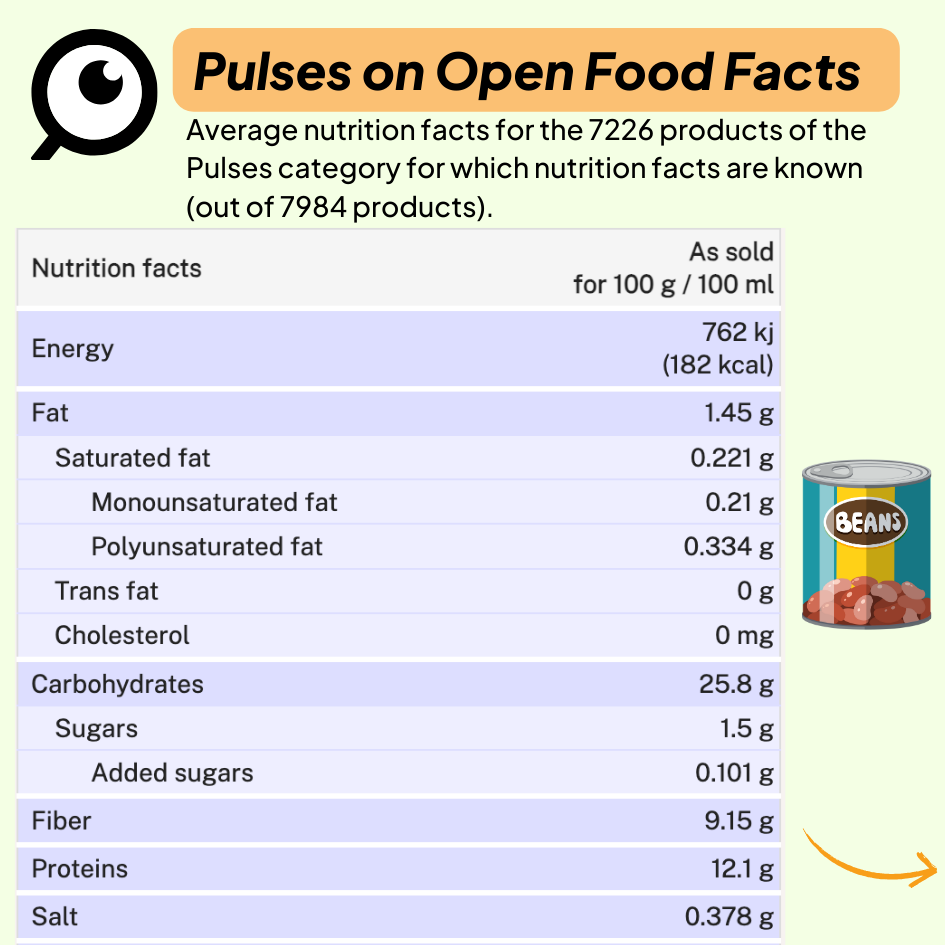
Pulses do not include crops that are harvested green (e.g. green peas, green beans)—these are classified as vegetable crops. Also excluded are those crops used mainly for oil extraction (e.g. soybean and groundnuts) and leguminous crops that are used exclusively for sowing purposes (e.g. seeds of clover and alfalfa).
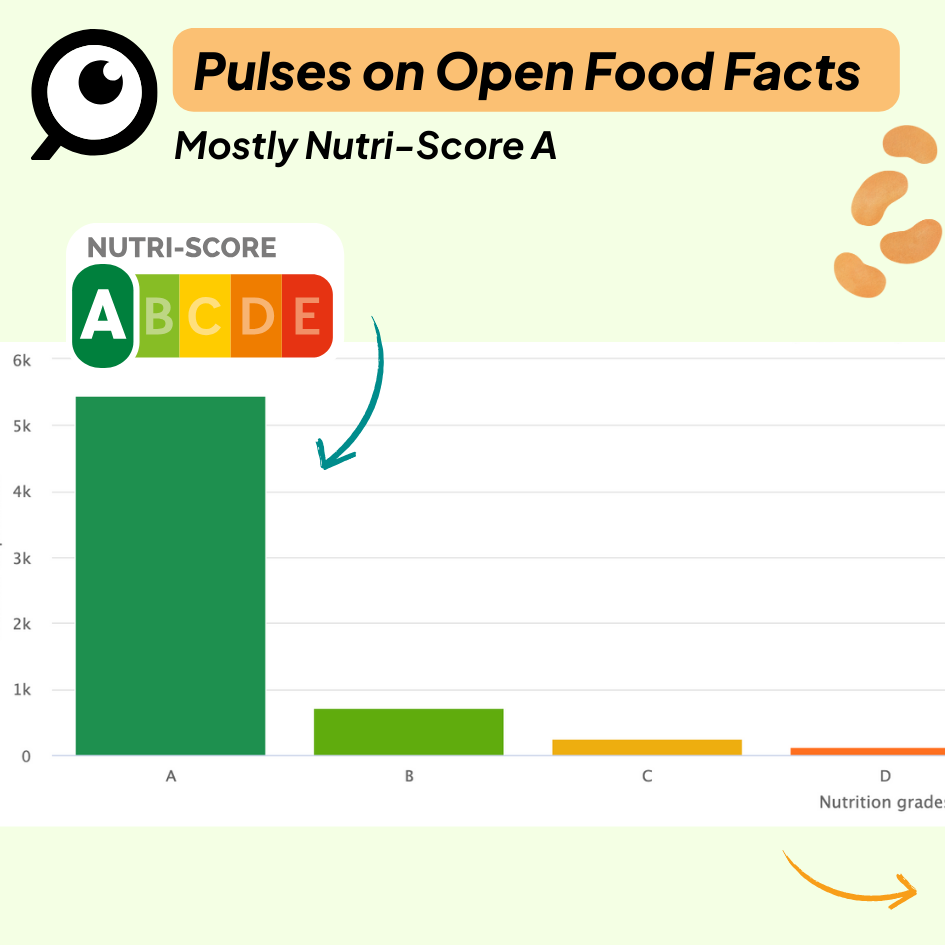
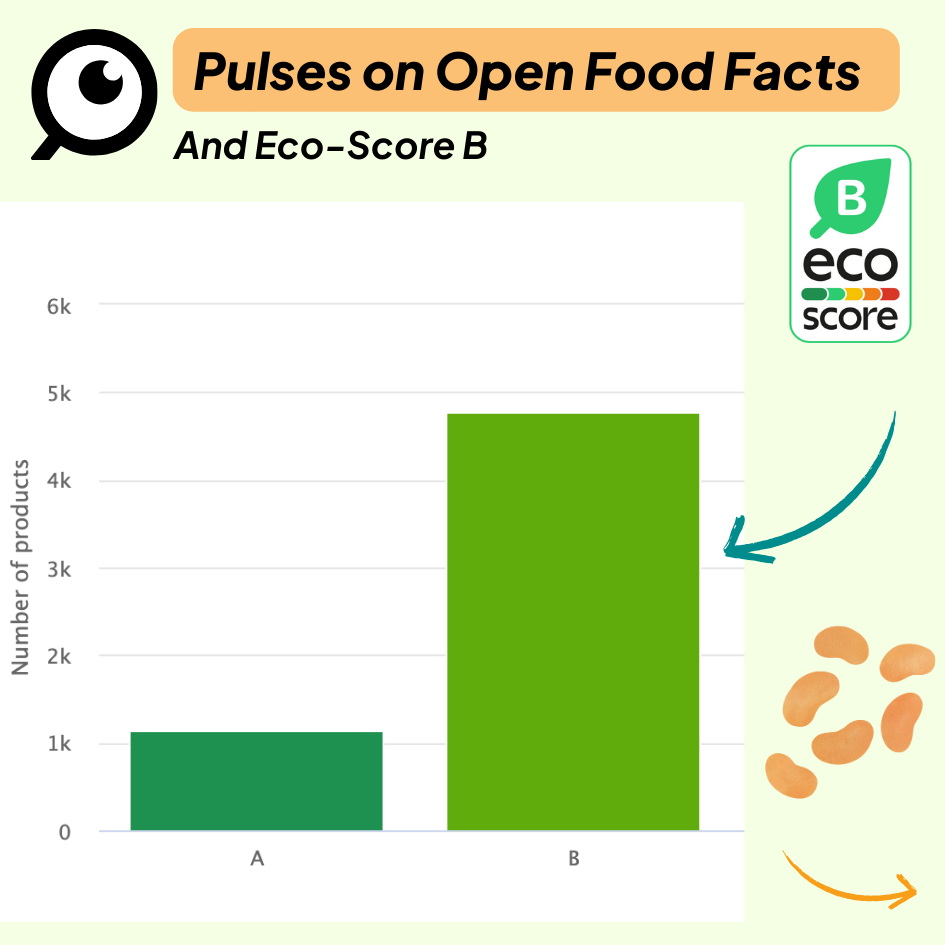
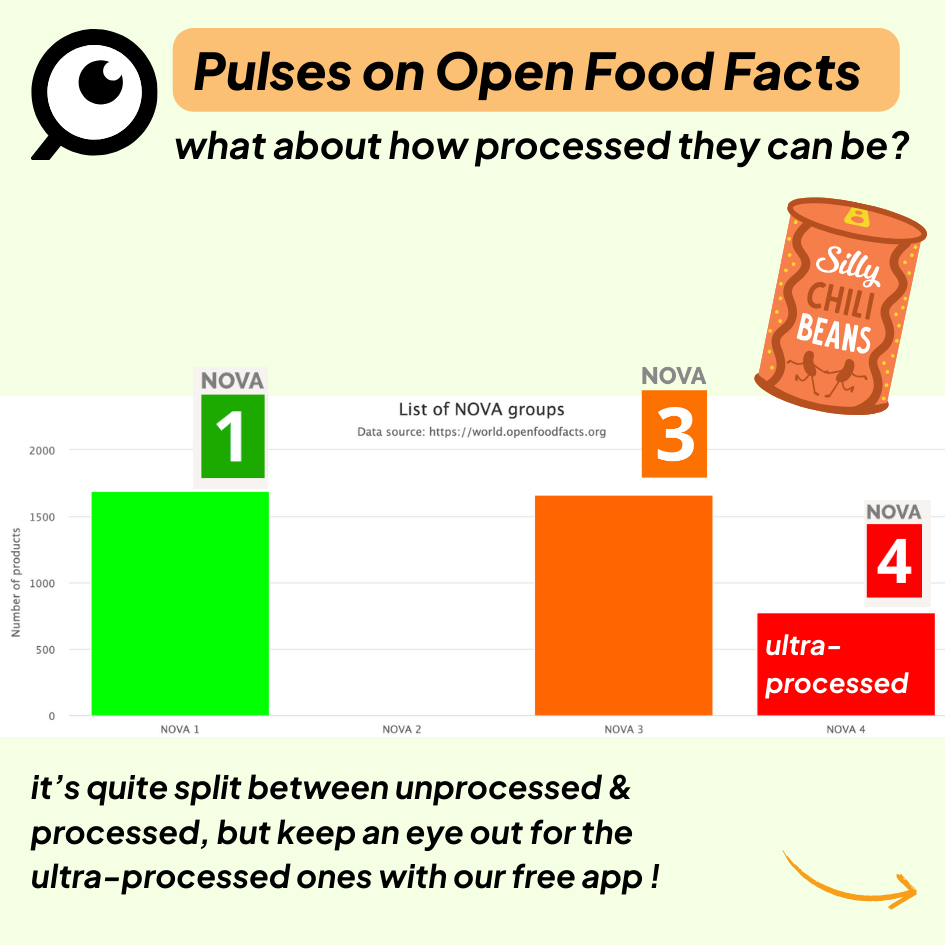
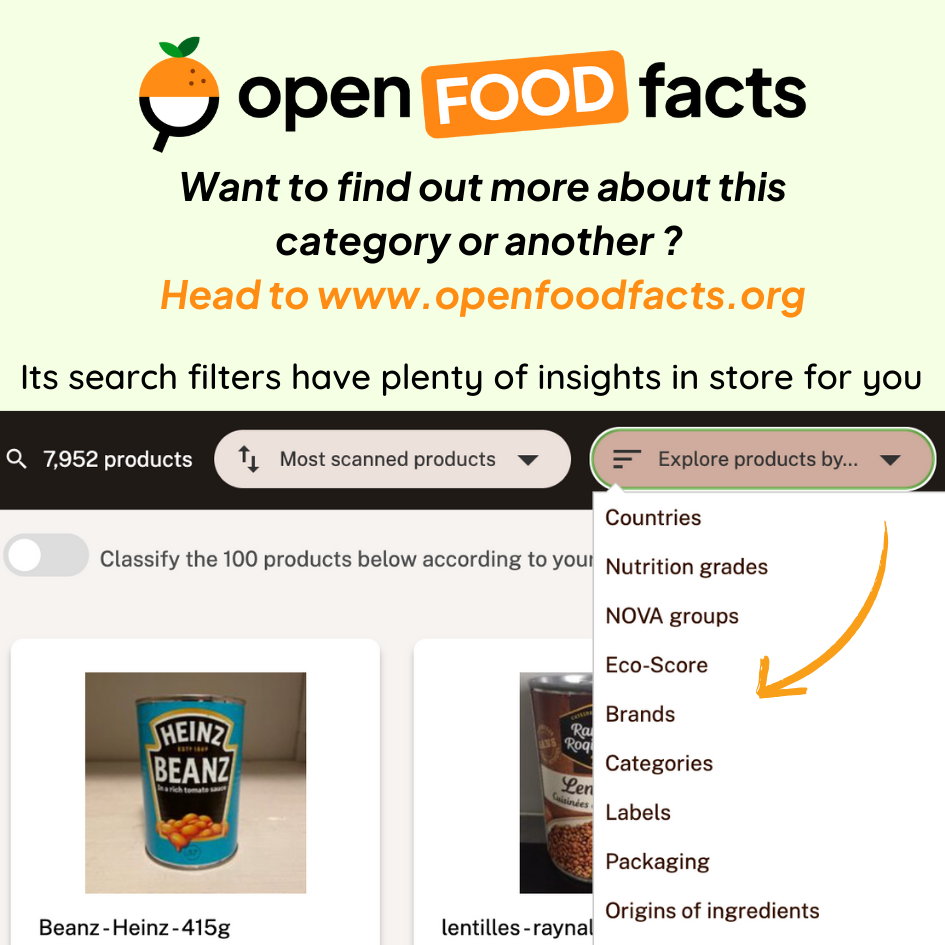
Check out the ‘pulses category’ on Open Food Facts: https://world.openfoodfacts.org/cgi/search.pl
Read also: Food and Climate Change: Healthy diets for a healthier planet
Blog cover image: FAO/Luis Tato

